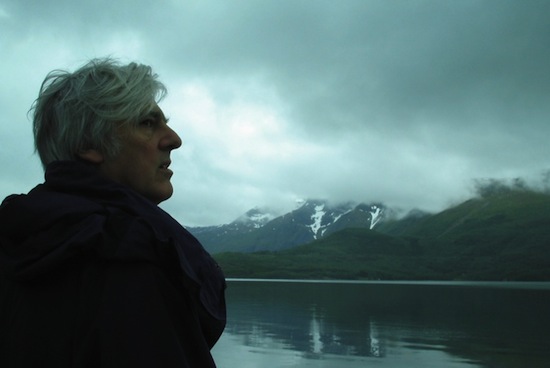“Have a I felt out of step? Oh, totally!” laughs Robyn Hitchcock as he settles down in the confines of a snug north London boozer as he considers his career ahead of discussing his favourite 13 albums.
“Well, I felt out of step when I started when I had my art school band in ’72,” he continues. “I remember some American guy coming up to me saying, ‘That bubblegum stuff you’re playing is OK but have you got any bump’n’grind?’ And I gave him this look of horror and said, ‘Sir, we do not play funk!’”
Robyn Hitchcock is the kind of artist who could only appear from these shores. Influenced by the likes of John Lennon, Bob Dylan and Syd Barrett, his latter-day take on psychedelic pop with The Soft Boys first raised its head above the parapet during the punk wars of the late 70s. Often whimsical and surreal, this off-kilter view of English life was at sharp odds with the belch of fury that had emanated from the World’s End area of the King’s Road, a position that he was only too aware of.
“Back then I was on a mission, as far as I was concerned,” he recalls. “Music had taken a wrong turning back in 1967 when everybody got too stoned and got into funky jams. You know, just listen to the stuff Hendrix was doing in ’69 compared to the earlier stuff. People got too damned stoned and couldn’t be bothered to remember chord sequences and they ended getting the mightiest of blowjobs from the critical establishment for just riffing away for 10 minutes. It didn’t matter whether you were Jack Bruce or some stoners from Ladbroke Grove; you just turned your amps up and stood there and waffled!”
Having spent his teenage years in the 60s, Hitchcock realises and appreciates that his take on the decade that’s still fought over by musicians, politicians and historians is a personal interpretation rather than a matter of fact.
“I was never trying to be ‘psychedelic’ in The Soft Boys – I didn’t have daffodils in my eyes – I was simply working in that genre but in the future. And that future was the dystopian 70s, 80s and 90s. The future’s always dystopian, isn’t it?” he chuckles as he explains his rationale.
“But looking back, the 60s weren’t that great. They just seemed like it,” he sighs. “My memory of it is paranoia, social disruption and angst. The first thing I remember is the Cuban missile crisis. I was 13, 14 around ’66 and ’67, which are very self-mythologising years. I was too young to be a participant; I was a wannabe and it’s always the wannabes who take away the greatest memories.
“I was too young to fry my brains. I’d look up in wonder at these people in kaftans and crushed velvet trousers and having sex outside of marriage and smoking these little cigarettes with a cardboard thing in the end and then laughing at nothing. I went on to try to do it but of course it was already too late. Reality had already been indelibly jammed into our third eyes. So that’s my context before we go into these albums!”
And so, dear reader, you’re urged to pull up your scatter cushion, get the lava lamp on and get ready to alternately mellow and freak out to Robyn Hitchcock’s favourite 13 albums…
Robyn’s new album, Love From London, is released on March 4. He’s playing a retrospective 60th birthday show at Village Underground on February 28, followed by a UK tour in March – for details and tickets, head to his website here. To read Robyn’s Baker’s Dozen, click on the photo below


